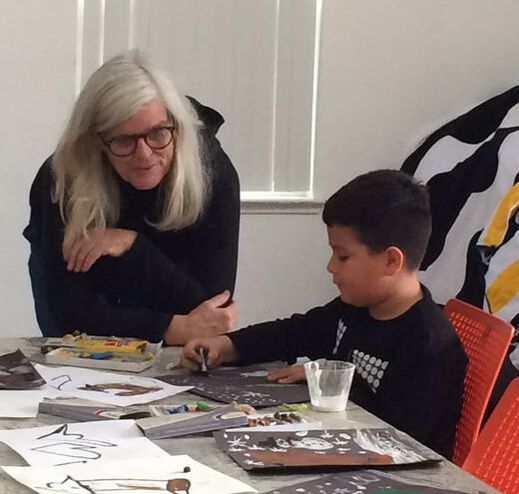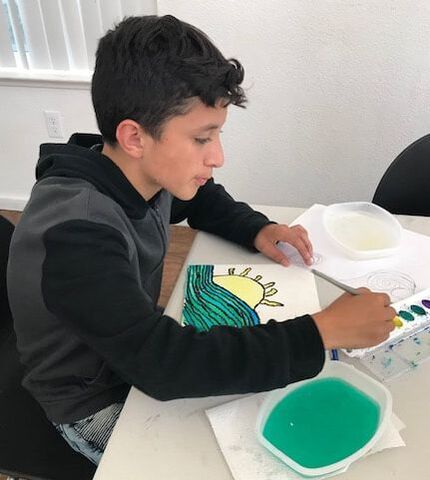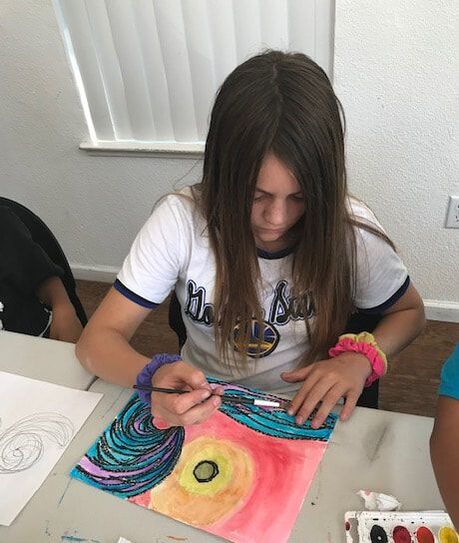Homework Help & Reading Tips for K to 8 Kids
The NYPL After School team, including Teen Reading Ambassadors, are here to help kids in grades K–6 tackle their homework and get excited about reading at the start of a new year! Read on for smart and practical suggestions for figuring out math word problems, staying organized, and, of course, reading some great books.
|
Read with a friend! You can help each other read, learn new words, AND talk about your favorite parts together! --Yuneydy Paredes, Teen Reading Ambassador, Bronx Library Center.
Read whatever you are interested in! It doesn't matter if it's fiction, poetry, comic books, non-fiction, or even magazines! Don't rule out any books. A quote I like is, "Reading is reading and it’s all worthwhile." --Muslimat Oguntola, Teen Reading Ambassador, Baychester Library Stay positive when you're doing your assigned homework. It's not supposed to be a punishment, instead, the teachers want to reinforce what you learned in school! Remember: the faster you get it done, the more free time you have to color, paint, watch TV, and do any other hobbies you have! --Lina Lin, Teen Reading Ambassador, Bloomingdale Library Tutor TipA tip to get a child interested in reading is to ask them what they like and what they would like to know more about. Use this to help them find a book! I have firsthand experience with this. When one of the kids [at NYPL After School] is done with their homework they want to pick a book and this is the process we go through. After selecting a couple of books, we skim them and, if they like it, we read it! --Arlin Rodriguez, Teen Reading Ambassador, Bronx Library Center
Experts say:Find a comfortable location that’s quiet and has plenty of space for all of your necessary supplies. Read the directions carefully so you know what your teacher is asking. Look up unfamiliar words in a dictionary. Check over your work when you are finished. --Elizabeth Nisselson, Lead Tutor, Bloomingdale Library For 3rd—6th graders, I recommend: 1) choosing which subject of homework you’d like to tackle first (easiest to hardest is recommended) to prevent feeling overwhelmed by the work, 2) setting up a small reward for yourself after you finish your homework to motivate you to get it done, and 3) if you find yourself stuck you can always review notes or ask for help. --Ciara Taveras, Teen Reading Ambassador, Woodstock Library Have something to look forward to when you complete an assignment! Whether that be a delicious snack that you’ve been craving, or a fun show or video to watch when you’re done. --Sophia Tan, Lead Tutor, Seward Park Library Do you want to go on adventures with pirates, try to survive the rough sea after escaping capture during your top-secret mission, or solve mysteries and fight crime? Sounds too good to be true? Reading opens up a whole new world where anything and everything is possible, grab a book and you'll see! --Walaa Alyamani, Teen Reading Ambassador, Chatham Square Library Make sense of what you’re learning. Take breaks while studying and feel free to start working on something else. Test yourself to check your progress and improve faster! --Jensy Jimenez, Teen Reading Ambassador, Mosholu Library
|
Good Advice for Working on Your OwnDo the assignment you find easiest first. Don't give up, stay positive! Try working in quiet spaces to focus. Manage homework time wisely. --Kelechi Akabuogu, Teen Reading Ambassador, Woodstock Library
More Tips for Making SenseYou might have a hard time finding the right words or thoughts to use for telling the main idea of a story. Using graphic organizers is a great way to develop your thoughts. Making an outline helps you break down the story into smaller pieces, before you know it, you have written an entire summary! --Deoranie Rajkumar, Lead Tutor, Kingsbridge Library Do you get confused with all of the characters in your book? Make a character list! On a sheet of paper, include the most important characters in the story and a small description of who they are. You can fold it up and keep it with you to look for a character or add a new one to the list. --Izabell Mendez, Teen Reading Ambassador, Macomb’s Bridge Library
When dealing with a math word problem the reader should understand or circle important information. It can be a helpful reminder to write down everything you’ve circled to the side of the word problem, making the problem easier to solve! --Deoranie Rajkumar, Lead Tutor, Kingsbridge Library If you are having trouble adding or subtracting numbers, remember you can use objects to represent the numbers, like your fingers, or toothpicks, or pieces of paper rolled up into little balls. --Philip Valenti, Lead Tutor, Baychester Library |


